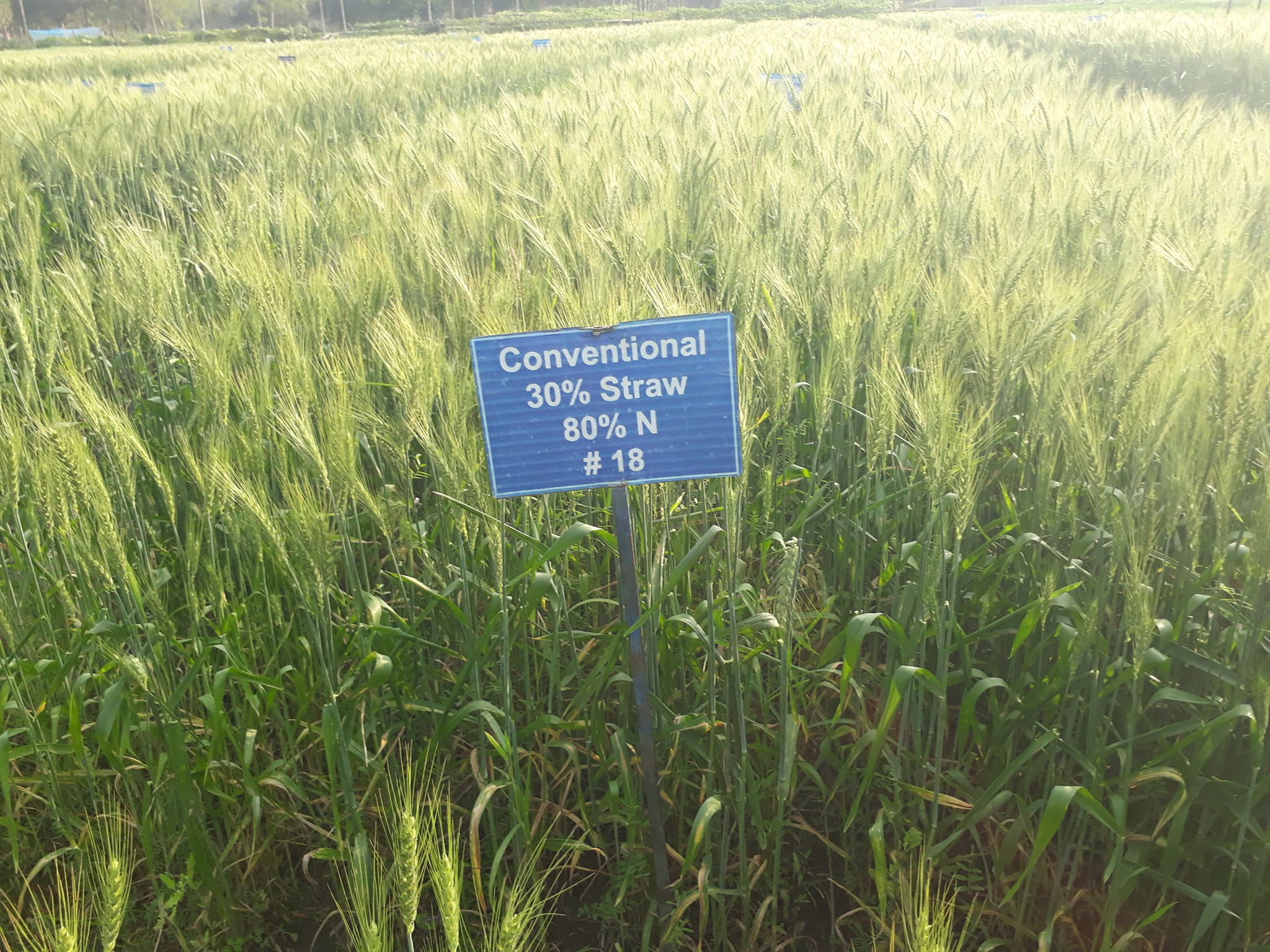
RAJSHAHI, Feb 28, 2024 (BSS)- Excellent growth of wheat plants has created a prediction of bumper yield of the food grain in the Rajshahi region including its vast barind tract generating massive hope of ensuring food security of people.
"We are witnessing outstanding and eye-catching wheat fields everywhere in the region by dint of suitable climatic conditions since the initial stage of the farming," said Mariam Ahmed, Upazila Agriculture Officer.
She mentioned that farmers' interests towards wheat farming have been enhanced to a greater extent in the region due to various reasons for the last couple of years. Wheat is one of less-irrigation consuming crops.
Many government and non-government organizations concerned are motivating and inspiring the farmers to wheat farming in the water-stressed Barind area in order to lessen the gradually mounting pressure on its groundwater level.
Darul Hossain, 52, of Bhatupara village under Godagari Upazila, has cultivated wheat on four bighas of land and he's happy over his present farming condition. "We are using less-irrigation for wheat farming compared to Boro paddy farming," he said.
He said successful promotion of less-water consuming crops in the Barind area would play a vital role to lessen the gradually mounting pressure on its underground water.
Rafiqul Islam, a marginalized farmer of Fulbari village under Godagari upazila, said he is very happy after getting the incentives in time.
"I have sown wheat seed on one bigha of land timely after getting the seed and fertilizer incentives," Islam said, adding that the time prior to the end first week of December is considered as an appropriate period for sowing wheat seed.
Rajshahi Regional Office of Bangladesh Wheat and Maize Research Institute (BWMRI) has developed 320 demonstration plots on farmers' fields.
Prior to this, 320 farmers were given 5.5 tonnes of breeder seeds and 8.5 tonnes of truthfully labelled seeds of some high yielding, heat and drought tolerant and blast disease resistant varieties like Barigom 28, 29, 30 and 33 along with recommended fertilizers for the projection plots free of cost.
Dr Ilias Hossain, Chief Scientific Officer of BWMRI, told BSS that the Barigom 33 is the latest variety which is blast disease resistant, zinc-enriched, large grain size and high yielding (20 maunds per bigha).
He said promotion of modern technologies in wheat farming could be the effective means of boosting wheat yield as a whole.
Disseminating ideas of modern technologies among the field level agricultural officials and farmers on how to expand the wheat cultivation in the drought-prone area has become indispensable.
Dr Ilias says wheat plays an important role to ensure food security as its consumption is increasing day by day. But, Bangladesh produces hardly 10 lakh metric tons of wheat against the demand of around 40 lakh tons annually.
Meanwhile, more than 5.64 lakh tonnes of wheat are likely to be harvested from around 1.27 lakh hectares of land during the current season in all eight districts of the division.
Department of Agricultural Extension (DAE) has set the target of producing 3.88 lakh tonnes of wheat from 93,410 hectares of land in four districts of Rajshahi Agricultural Zone, while 1.77 lakh tonnes from 33,676 hectares in four districts of Bogura Agricultural Zone.
The DAE has disbursed seeds and fertilizers free of cost among most of the small and marginal farmers for wheat farming under the government's agricultural incentive programme in the division so that they can boost wheat production.
Substantial and sustainable expansion of wheat farming can be one of the best ways of mitigating the existing water-stress condition in the region, particularly the high Barind tract, as wheat is an environmentally friendly crop.
Time has come to enhance acreage of wheat farming instead of depending on only boro rice in this area to ensure food security amid the adverse impact of climate change.
ATM Rafiqul Islam, Manager (Agriculture) of Barind Multipurpose Development Authority (BMDA), mentioned that seven to eight bighas of wheat could be cultivated with the irrigated water of only one bigha of boro rice through soil moisture utilization and the best uses of the modern technologies.
In the conventional system, the single largest constraint requires planting of wheat in the region late in winter, leading to a poor yield. Sowing bed could be a good alternative to the region's dominant wet culture, he said.
He has suggested developing and disseminating appropriate farm machinery like power tiller operated seeder, strip till and zero till, bed planter, reaper and thresher to enhance the farm production especially wheat.